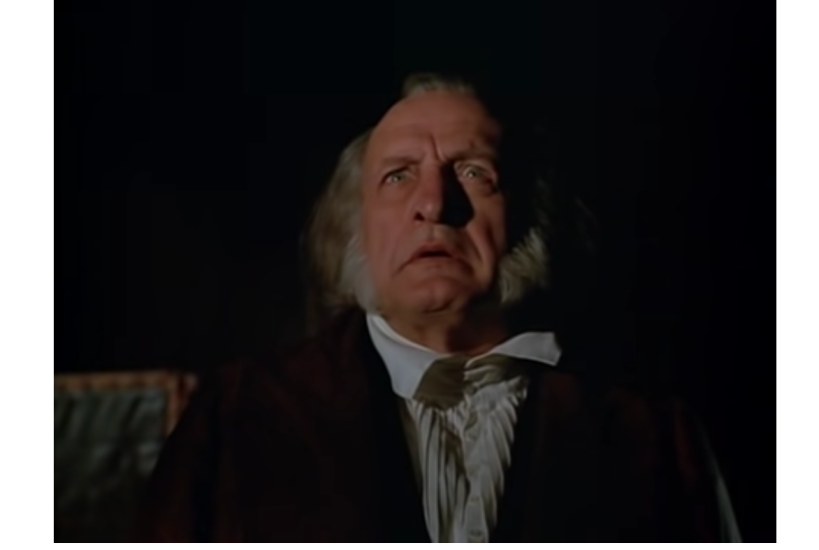There is no Christmas story like A Christmas Carol, and few seasonal characters as iconic as Ebenezer Scrooge; the ‘clutching, covetous old sinner’ who finds redemption in the abandonment of sound business sense and the joy of Christmas cheer. Scrooge’s name has become a byword for miserly conduct, with Jeremy Hunt the latest to claim the mantle as he raised taxes last month. But this depiction of Scrooge as Mr Bah Humbug is deeply unfair. He deserves better.
For economists like me, there is much to admire about Scrooge the moneylender, who did rather more for human welfare than the late-in-the-day Scrooge filled with the spirit of Christmas. Even Dickens concedes that Scrooge possessed some good qualities; the first paragraph of A Christmas Carol establishes his reputation as an honourable and trustworthy man; his name is ‘good upon ‘Change, for anything he chose to put his hand to’. It is on this bedrock that the defence of Scrooge will be built.
Men like Scrooge – early venture capitalists – built this country
A Christmas Carol takes place in the 1830s, between the creation of the New Poor Law and the burning down of the Royal Exchange. This was a world turned upon its head; the previous century had seen the invention of the flying shuttle and automatic looms, the spinning jenny, Watt’s condensing steam engine, the puddling furnace for producing masses of wrought iron, the locomotive, the railway, and – just a few short years before the beginning of the story – the opening of the first inter-city railway anywhere in the world. These inventions were built upon impressive technical knowledge and experimentation; they were adopted with capital and credit. That credit was provided by sound men of business, like Ebenezer Scrooge.
While the Industrial Revolution saw rapid technological change, it did not see rapid economic growth; it was not until the first quarter of the 19th century had passed that industrial output really started to rocket. This isn’t because early inventions were unimportant. Part of the slow growth is a matter of simple mathematics; when a small part of the economy starts to grow very quickly, it doesn’t show up in aggregate figures until it’s a relatively large part. But it is also a story of finance; you need money in order to invest.
Early stories of the industrial revolution had investors and inventors financing the building of factories and machines with their savings, or borrowing from family and friends. But these sources are limited, and they are hard to get hold of; if you had a world-changing idea and the skills to build it, but no wealthy uncle, you were out of luck. As a result, the lack of financial development in Britain held back growth. Men like Scrooge – who directed credit to sound investments – were a rare bright spot in the primordial darkness.
At this point, you might reasonably note that Scrooge lent out money in order to make himself wealthy. Well, yes – and from a social perspective, that is the best thing he could have done. As Adam Smith noted, it is not from the benevolence of the butcher or baker that we expect to receive our meals, but their self-interest. Just as the invisible hand of the market puts food on our table, it directs credit to the investments which generate the highest returns; the machines and factories which are most likely to pay off, to generate economic growth, and to continue lifting British people out of poverty.
The fact that Scrooge demanded collateral for his investments, or would eventually evict those unable to pay their mortgages, is not a testament to his coldheartedness, but to the simple logic of growth; money left in failing enterprises is not generating the returns that it could. It is better spent elsewhere.
Admittedly the fact that Scrooge’s first thought on believing the world to have been plunged into permanent darkness was that people might not honour their debts does look bad at first sight. But even if Scrooge is personally obnoxious – and we really do only have the dubious word of Dickens here – he is still ultimately driving at the welfare of all his fellow countrymen; even if his only concern is their repayment of his debts, he would rather not see the utter annihilation of humanity. And through the work of the invisible hand, he is doing good, no matter his motivations. As Margaret Thatcher said, ‘no-one would remember the Good Samaritan if he’d only had good intentions; he had money, too’. Now consider the reformed Scrooge; directing money with little care to its consequence, ruining his creditors to benefit his debtors. Does that really count as progress?
Men like Scrooge – early venture capitalists – built this country. A Christmas Carol is the 19th century version of journalists complaining about investment bankers, a sad tale of religious dogma undermining the industrial revolution. Christmas? Bah. Humbug.
Got something to add? Join the discussion and comment below.
Get 10 issues for just $10
Subscribe to The Spectator Australia today for the next 10 magazine issues, plus full online access, for just $10.



















Comments
Don't miss out
Join the conversation with other Spectator Australia readers. Subscribe to leave a comment.
SUBSCRIBEAlready a subscriber? Log in